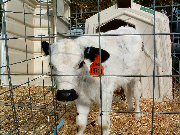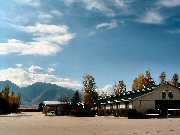| From Strugglingteens.com Visit Reports Mapleton, Utah
Discovery Ranch also uses cognitive behavioral psychology, dialectical behavioral therapy (DBT) and experiential ropes courses. Students participate in five formal groups per week, including specialty groups such as substance abuse, if needed, along with two individual and one family session each week. The desired therapeutic outcomes for students are based on their individual needs. Because of this, the expectations for individual students may vary, which may require additional communication with the parents to help them understand how to determine when their child has met the treatment goals. Discovery's level system is based on the accomplishment of individual goals, with no waiting period for parents to have therapeutic phone calls with their child upon enrollment. With permission of the treatment team parents can visit and are encouraged to participate in parent workshops. Discovery Ranch is a coed program for students' ages of 13-17 who need intensive therapeutic intervention before attending a more transitional setting. Students attend the program as long as their individual needs require, but the minimum is four months. Discovery is cautious not to accept anyone into their milieu who is extremely oppositional, violent or lacks empathy.
While visiting the boys' house on one side of campus and the girls' house on the other, I was struck by how peaceful and comfortable they felt. Each house was attractively decorated to convey a sense of light and spaciousness. The girls' house was adorned with more personal items than the boys', which was fairly utilitarian. Although busy with various projects, the students were friendly and took time to greet me. The staff engaged in good-natured interaction with the students while they worked together. The first project for all students' is to make a simple quilt for their bed, which helps the students' create some personal space. While talking with students I learned that opinions about the ranch varied, based on their individual situations. One girl, who was obviously having a hard time, sat with her back turned to the others, and stared out a window as a female staff member stayed close by. The girl looked up and greeted me when I said hello, but then returned to her thoughts. One young man was focused on going home, but acknowledged that he had learned a lot about himself while at the program. While I observed the boys feeding and vaccinating their calves, another young man proudly and fondly showed me his calf. Within a few months this young man had moved from extreme resistance to a role of leadership in the ranch work, and active participation in school. One young man who had arrived recently was somewhat unwilling to reveal much about himself, but he did say that he had learned from other students that Discovery was much more pleasant than other programs. For safety reasons, he wore pink sweats, which is required when a student is on precautions such as talking about running or self-harm. The sweats alert the staff that this student is someone to closely watch until he earns a level of trust.
The communications between clinical and program staff and their collaboration with students on their various projects creates a feeling of something similar to an extended family. The four licensed Masters or PhD level clinical therapists are supervised by Clinical Director, Craig Smith, LCSW, who has extensive program experience and conducts their DBT classes. Therapists Matt Child and Lynn Nelson took time to discuss my "client kids" with me, as they do each month. They, along with Leslie Giles, Residential Director, also have many years of program experience and a great deal of insight and empathy. Don Fannon, who is in charge of the calves, and his wife Pat, the cook, have ranched extensively while raising many adopted children along with their own. Together, they have taken on somewhat parental roles with the students. I also met Jerry Christensen, Experiential Director, who oversees ranch operations and is EGALA certified for equine therapy. I was impressed with way the clinical and program staff worked with the students. Although only operational since June 29, 2005, Discovery Ranch is staffed by people who have many years of experience in this field. They express a willingness to constantly evaluate their progress and quickly respond to any areas that need to be strengthened. For example, feedback from a recent parent workshop indicated a need to better coordinate their academics, which resulted in an immediate strengthening of staff in this area. Discovery Ranch offers a very healing setting for struggling adolescents who need a higher level of care for an individually based period of time. It is a place to develop insight and learn very helpful tools that can facilitate movement into a less restrictive, more normalized setting. © Copyright 2012 by Woodbury Reports, Inc. |


